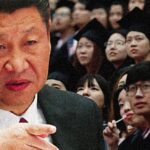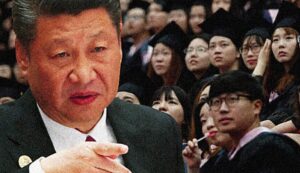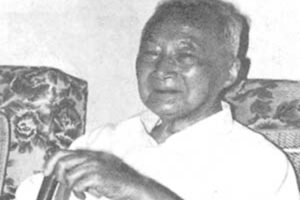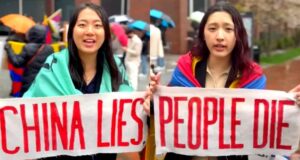
A few censors in China help people evade censorship. Probably not many. The story of one of them, Liu Lipeng, which is also the story of the novelist Murong Xuecun, is told in a lengthy Guardian article by Murong.
Eventually, after leaving China for good, Liu ended up working for China Digital Times to report on and fight censorship. But even when working as a censor in China for the social media platform Weibo, Liu was fighting censorship.
It is 2013. For four full months, Liu Lipeng engages in dereliction of duty. Every hour the system sends him a huge volume of posts, but he hardly ever deletes a single word. After three or four thousand posts accumulate, he lightly clicks his mouse and the whole lot is released. In the jargon of censors, this is a “total pass in one click”, after which all the posts appear on China’s version of X, Sina Weibo, to be read by millions, then reposted and discussed….
After three years as a censor, Liu detests his job.
Liu’s attitude is the opposite of that of colleagues like “Chen Min,” who one day “suddenly jumps up, limbs flailing ecstatically.”
He has uncovered Wang Dan’s Weibo account. All the censors know that Wang Dan, one of the 1989 student leaders, political criminal and exile, is considered by the Chinese government to be one of the most important enemies of the state. Finding him is a big deal, and the news is immediately reported to the Sina Weibo office in Beijing. It might even be reported to the public security bureau.
The following month, a senior manager comes specially from Beijing to highly commend Chen Min for discovering intelligence about the “enemy”, praising his “acuity” and “high level of awareness”, and bestows on him a small bonus. All his colleagues applaud and shout in admiration.
In 2013, Murong, a bestselling author with a popular Weibo account, doesn’t yet know Liu. He does know and have a relationship with another censor, “Jia Jia”; for Murong is important enough to have a particular censor assigned to him. She calls him on the phone to gently admonish him whenever he crosses some line online. “Mr. Mu, that post of yours won’t do. I deleted it for you.”
With the rise of Xi Jinping, the censorship regime gets even worse, and one day Murong is banned from Weibo for publicly asking a government official: “Who gave you the right to arbitrarily deprive citizens of their freedom of speech?” When he tries to find out which agency and which official issued the ban, Jia Jia won’t tell him and pleads for understanding. “I have a life too, right?”
But:
The next day, around dusk, my friend Yu Dayou [not his real name] calls to tell me he received an email from a stranger. The email is about me and he forwards it. It is just one line: “Please forward to Murong Xuecun.” There are two attached images. They are screenshots of the Weibo management page that contain detailed information about my account: time of registration, IP address, my mobile phone number, the reason for the deletion of each of my posts and the blocking of my account, as well as the answer to the question I pestered Jia Jia about: which agency and who ordered my account to be cancelled.
My first thought was that Jia Jia had decided to secretly help Murong after all. But the secret divulger of secrets turns out to be Liu Lipeng. Years later, when Liu has left China and Murong is about to do the same, Liu will contact Murong and tell his story.
Also see:
StoptheCCP.org: “A Chinese Censor Explains: ‘We’re just workers, after all’ ”
StoptheCCP.org: “ ‘YouTube Doesn’t Want Us Talking About China’ ”











